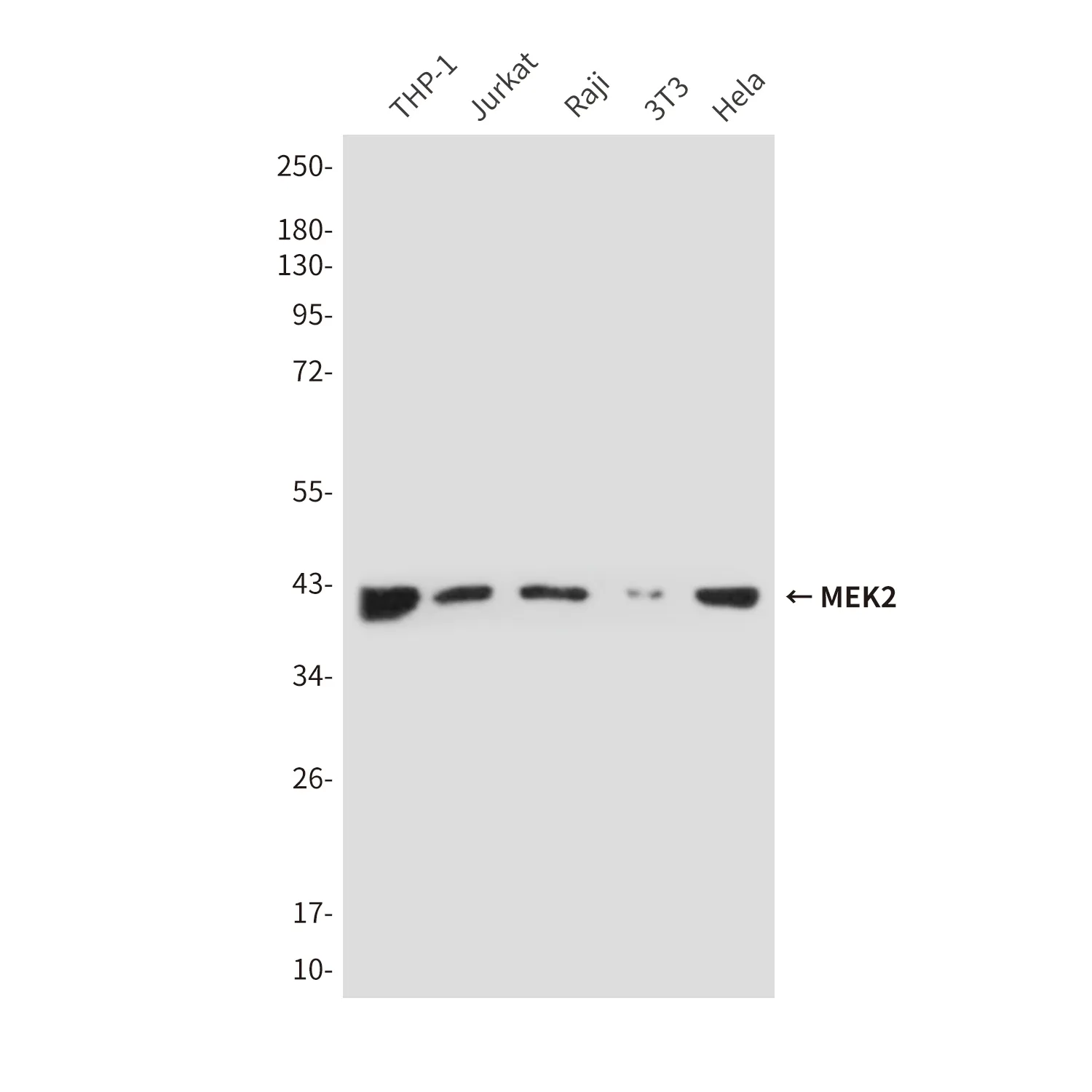Summary
Performance
Immunogen
Application
Background
DNA double-strand breaks are generated by ionizing radiation and endogenously produced radicals, and they often are repaired through the RAD52 homologous recombination pathway. The complex possesses single-strand endonuclease activity and double-strand-specific 3'-5' exonuclease activity, which are provided by MRE11A. RAD50 may be required to bind DNA ends and hold them in close proximity. Component of the MRN complex, which plays a central role in double-strand break (DSB) repair, DNA recombination, maintenance of telomere integrity and meiosis (PubMed:9651580, PubMed:9590181, PubMed:9705271, PubMed:11741547, PubMed:29670289). The complex possesses single-strand endonuclease activity and double-strand- specific 3'-5' exonuclease activity, which are provided by MRE11 (PubMed:9651580, PubMed:9590181, PubMed:9705271, PubMed:11741547, PubMed:29670289). RAD50 may be required to bind DNA ends and hold them in close proximity (PubMed:9651580, PubMed:9590181, PubMed:9705271, PubMed:11741547, PubMed:29670289). This could facilitate searches for short or long regions of sequence homology in the recombining DNA templates, and may also stimulate the activity of DNA ligases and/or restrict the nuclease activity of MRE11 to prevent nucleolytic degradation past a given point (PubMed:9651580, PubMed:9590181, PubMed:9705271, PubMed:11741547, PubMed:29670289, PubMed:30612738). The complex may also be required for DNA damage signaling via activation of the ATM kinase (PubMed:15064416). In telomeres the MRN complex may modulate t-loop formation (PubMed:10888888).
Research Area




